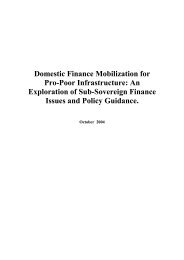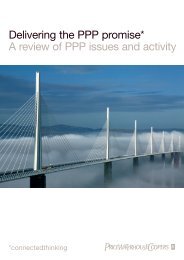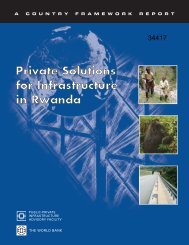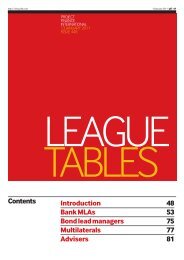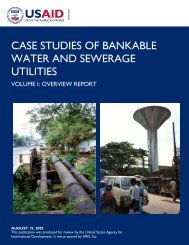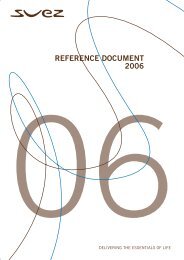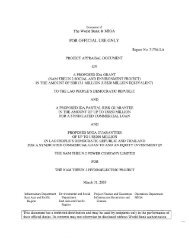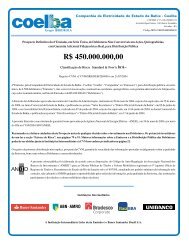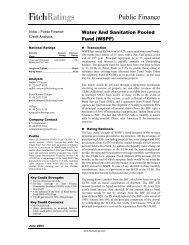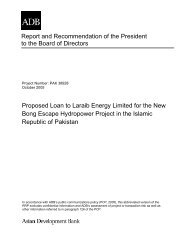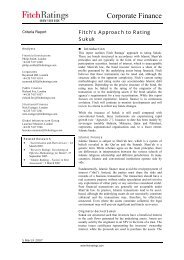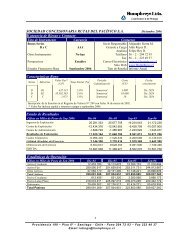EAP - The Pacific Infrastructure Challenge - World Bank (2006).pdf
EAP - The Pacific Infrastructure Challenge - World Bank (2006).pdf
EAP - The Pacific Infrastructure Challenge - World Bank (2006).pdf
Create successful ePaper yourself
Turn your PDF publications into a flip-book with our unique Google optimized e-Paper software.
Other <strong>Pacific</strong> countries (Vanuatu and Marshall Islands) have undergone a similar policy shift.<br />
In Vanuatu, several road construction projects have been under-taken in the past five years<br />
without adequate economic justification. <strong>The</strong> result is that many of these roads are unlikely<br />
to result in the expected economic or social return on investment, while much needed<br />
upgrades for major urban roads in Port Vila and Luganville have been slow 66 .<br />
In countries like Papua New Guinea where the road network is still fragmented and sparse,<br />
operation and maintenance is still critical, but road construction remains equally important.<br />
Contracting<br />
Road maintenance contracts are traditionally designed on a per unit basis for a short term<br />
assignment, rather than on the quality of output 67 . For example, contractors are paid per<br />
pothole fixed in a road, per kilometer of litter removal or lane striping or per hour worked<br />
on a particular stretch of road. When paid on this basis, it is in the best interests of the<br />
contractor if there are more potholes to fix, for example. <strong>The</strong>y therefore have less incentive<br />
to do quality work and contract supervision processes are often not adequate to ensure<br />
quality.<br />
Internationally, performance based contracts have become more common. Under<br />
performance based contracts, success is defined by the achievement of certain minimum<br />
performance standards. Payment is based on achievement at different milestones with bonus<br />
rewards for good performance and penalties for poor performance. In this scenario, the risk<br />
is transferred to the contractor.<br />
Long term performance based contracts have been used with some success in New Zealand<br />
where almost all roadwork has been outsourced in the past ten years. <strong>The</strong> New Zealand<br />
government has developed a 10-year maintenance contract called a “performance specified<br />
management contract”. Under this contract, the contractor takes total responsibility for<br />
delivering pre-agreed service levels. Regular audits are carried out to determine compliance.<br />
<strong>The</strong>se contracts have amounted to savings of around 20% and have substantially improved<br />
services 68 .<br />
Outsourcing may not work for all road sectors in <strong>Pacific</strong> countries. <strong>The</strong> experience in<br />
Vanuatu has been that private contractors are reluctant to maintain remote roads 69 . This<br />
could suggest that private sector involvement may not be possible in some of the smaller,<br />
more dispersed <strong>Pacific</strong> Islands and in remote areas of bigger countries. However, the<br />
Ministry of Works in Fiji noted that private contractors are just as interested in tendering for<br />
the maintenance of remote roads, as they have been for primary highways. If there is a lack<br />
of interest in remote and rural roads, the solution may be to increase the value and<br />
profitability of these contracts and impose penalties for not doing this work to a certain<br />
standard. This may be more attractive to private operators, while safeguarding a certain<br />
standard of work.<br />
66 Vanuatu <strong>Infrastructure</strong> Master Plan Development Framework, Republic of Vanuatu, February 2002<br />
67 “Contracting for Road and Highway Maintenance” Reason Public Policy Institute, March 2003. Interviews<br />
with Ministries of Works in Fiji and Samoa confirmed that this is the basis on which outsourcing occurs<br />
68 “In the last 11 years the actual maintenance cost has remained nearly the same in real dollars, yet traffic volumes<br />
have increased by 52% and accident rates have decreased by 45%” Robin Dunlap of Transit New Zealand quoted<br />
in Contracting for Road and Highway Maintenance” Reason Public Policy Institute, March 2003<br />
69 Vanuatu <strong>Infrastructure</strong> Master Plan Development Framework, Republic of Vanuatu, February 2002<br />
121



